Related Research Articles
Country rock is a music genre that fuses rock and country. It was developed by rock musicians who began to record country-flavored records in the late 1960s and early 1970s. These musicians recorded rock records using country themes, vocal styles, and additional instrumentation, most characteristically pedal steel guitars. Country rock began with artists like Buffalo Springfield, Michael Nesmith, Bob Dylan, Nitty Gritty Dirt Band, the Byrds, the Flying Burrito Brothers, The International Submarine Band and others, reaching its greatest popularity in the 1970s with artists such as Emmylou Harris, the Eagles, New Riders of the Purple Sage, Linda Ronstadt, Little Feat, Poco, Charlie Daniels Band, and Pure Prairie League. Country rock also influenced artists in other genres, including The Band, the Grateful Dead, Creedence Clearwater Revival, The Rolling Stones, and George Harrison's solo work, as well as playing a part in the development of Southern rock.
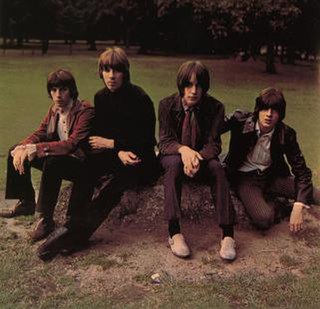
The Nazz was an American rock band formed in Philadelphia in 1967. The group was founded by guitarist and main songwriter Todd Rundgren and bassist Carson Van Osten. Drummer Thom Mooney and vocalist/keyboardist Robert "Stewkey" Antoni joined soon after. The group is best known for their debut single "Open My Eyes”, and "Hello It's Me".

Timothy Charles Buckley III was an American musician. He began his career based in folk rock, but subsequently experimented with genres such as psychedelia, jazz, the avant-garde, and funk paired with his unique five-octave vocal range. His commercial peak came with the 1969 album Happy Sad, reaching No. 81 on the charts, while his experimental 1970 album Starsailor went on to become a cult classic. The latter contained his best known song, "Song to the Siren." Buckley died at the age of 28 from a heroin and morphine overdose, leaving behind one biological son, Jeff, and one adopted son, Taylor.

The Chocolate Watchband is an American garage rock band that formed in 1965 in Los Altos, California. The band went through several lineup changes during its existence. Combining psychedelic and garage rock components, their sound was marked by David Aguilar's lead vocals, songwriting, as well as proto-punk musical arrangements. The band's rebellious musical posture made them one of the harder-edged groups of the period with many critics labeling them as America's answer to the Rolling Stones.
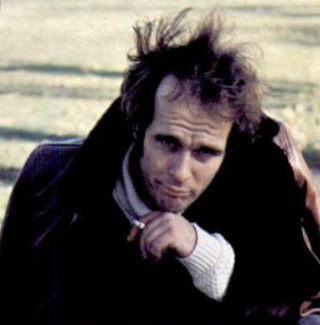
James Timothy Hardin was an American folk music and blues singer-songwriter and guitarist. In addition to his own success, his songs "If I Were a Carpenter", "Reason to Believe", "Misty Roses" and "The Lady Came from Baltimore" were hits for other artists.

Fred Neil was an American folk singer-songwriter active in the 1960s and early 1970s. He did not achieve commercial success as a performer and is mainly known through other people's recordings of his material – particularly "Everybody's Talkin'", which became a hit for Harry Nilsson after it was used in the film Midnight Cowboy in 1969. Though highly regarded by contemporary folk singers, he was reluctant to tour and spent much of the last 30 years of his life assisting with the preservation of dolphins.
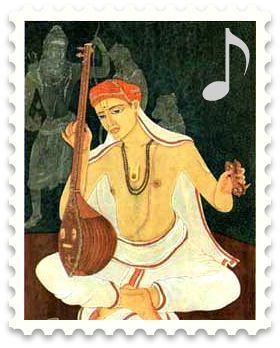
Raga rock is rock or pop music with a pronounced Indian influence, either in its construction, its timbre, or its use of Indian musical instruments, such as the sitar, tambura, and tabla. The term "raga" refers to the specific melodic modes used in Indian classical music.
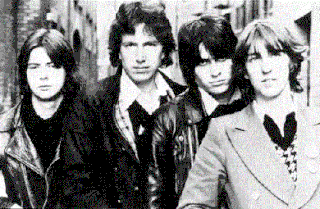
Tom Robinson Band (TRB) are a British rock band, established in 1976 by singer, songwriter and bassist Tom Robinson. The band's debut single "2-4-6-8 Motorway" was a top five hit on the UK Singles Chart in 1977, and their third single, "Up Against the Wall", is seen by some as a classic punk rock single; while their debut album, Power in the Darkness (1978), is regarded as a definitive late-1970s punk album. Their song "Glad to Be Gay" is considered a British national gay anthem.
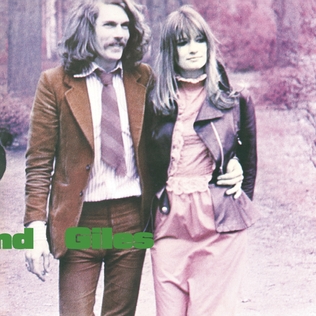
McDonald and Giles is an album released by British musicians Ian McDonald and Michael Giles in 1970. The album was first issued on Island Records in the UK and Cotillion Records, a division of Atlantic Records, in the US. The album was recorded at Island Studios between May and July 1970. Although McDonald and Giles remains popular among King Crimson fans, its commercial success was limited. The duo did not record a second album, but Giles did contribute drums and vocals to "Demimonde" on McDonald's solo album Drivers Eyes.

Tim Buckley is the debut album by Los Angeles based singer-songwriter Tim Buckley, released in October 1966. Most of the songs on it were co-written by Buckley and Larry Beckett while they were in high school. It was recorded at Sunset Sound in Los Angeles, California.

Sefronia is the eighth album by singer-songwriter Tim Buckley, released in September 1973.
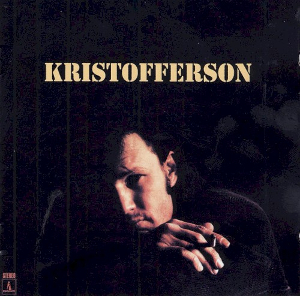
Kristofferson is the debut album by the singer-songwriter Kris Kristofferson. It was produced by Fred Foster and released in June 1970 by Monument Records. After working a series of temporary jobs, Kristofferson became a helicopter pilot for oil companies in the Gulf of Mexico. While he worked, he wrote songs and pitched them to singers around Music Row in Nashville, Tennessee during his free time. Kristofferson's songs were recorded by country singers Roy Drusky, Jerry Lee Lewis and Roger Miller and later he persuaded Johnny Cash to try his material. Cash invited Kristofferson to perform with him at the Newport Folk Festival, after which Fred Foster signed Kristofferson to Monument Records as a songwriter and recording artist.

Dream Letter: Live in London 1968 is a live album by Tim Buckley. The album was recorded in Queen Elizabeth Hall, London, England on October 7, 1968. Due to a lack of available funds Buckley was unable to tour with regular bass player John Miller and conga player Carter "C.C." Collins. The concert instead features bassist Danny Thompson, guitarist Lee Underwood and vibraphone player David Friedman.
"Don’t Make Promises" was the first track on Tim Hardin's debut album Tim Hardin 1, released in 1966. The song, along with "Reason to Believe," was one of the two major songwriting hits from the album, with more than a dozen cover versions having been recorded following its release. British radio presenter and writer Charlie Gillett noted the song's ability to achieve "the elusive balance between personal miseries and universal sufferings," while author Mark Brend praised the song's "fragile pop sensibilities" and how it contrasted with the "swaggering" R&B of album track "Ain't Gonna Do Without."

"Everybody's Talkin' (Echoes)" is a song written and recorded by the American singer-songwriter Fred Neil in 1966 and released two years later. A version of the song performed by the American singer-songwriter Harry Nilsson became a hit in 1969, reaching No. 6 on the Billboard Hot 100 chart and winning a Grammy Award after it was featured in the film Midnight Cowboy. The song, which describes the singer's desire to retreat from the harshness of the city to a more peaceful place and an easier life, is among the most famous works of both artists, and has been covered by many other notable performers.
"Song to the Siren" is a song written by Tim Buckley and Larry Beckett, first released by Buckley on his 1970 album Starsailor. It was later included on Morning Glory: The Tim Buckley Anthology, featuring a performance of the song from the final episode of The Monkees.
"Crucifixion" is a 1966 song by Phil Ochs, a US singer-songwriter. Ochs described the song as "the greatest song I've ever written".
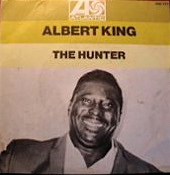
"The Hunter" is a blues song first recorded by Albert King in 1967 for his landmark album Born Under a Bad Sign. It was written by Stax Records' house band, Booker T. and the MGs, and Carl Wells. Along with "Born Under a Bad Sign" and "Crosscut Saw", "The Hunter" is one of King's best-known and most-recorded songs. In 1969, Ike & Tina Turner's version reached the singles charts in the U.S.

"Bluebird" is a song recorded by the American rock group Buffalo Springfield. It was written and produced by Stephen Stills, with co-production by Ahmet Ertegun. In June 1967, Atco Records released it as a single to follow-up their hit "For What It's Worth" (1966).

Edward Hoh was an American rock drummer who was active in the 1960s. Although primarily a studio session and touring drummer, Hoh exhibited a degree of originality and showmanship that set him apart and several of his contributions have been singled out for acknowledgment by music critics.
References
- ↑ Unterberger, Richie. "Great Moments in Folk Rock: Lists of Author Favorites". www.richieunterberger.com. Retrieved May 24, 2024.
- ↑ Laffler, William D. (January 25, 1967). "Popular Records: 'The Hardly Worthit Report' Is Hardly Worth It, Critic Testifies". The Town Talk. p. C9 – via Newspapers.com.
- ↑ Pollock, Bruce (2014). Rock Song Index: The 7500 Most Important Songs for the Rock and Roll Era. Routledge. p. 80. ISBN 978-1-135-46296-3.
- ↑ Brend, Mark (2001). American troubadours : groundbreaking singer-songwriters of the '60s. San Francisco, CA: Backbeat Books. p. 95. ISBN 978-0-87930-641-0.
- ↑ Brend, Mark (2001) "Fred Neil", Record Collector , No. 265, September 2001, p. 11.
- ↑ Hann, Michael (2012-03-09). "Old music: Fred Neil – The Dolphins". The Guardian. Retrieved 2022-07-25.
- ↑ Houghton, Mick (2010). Becoming Elektra : the true story of Jac Holzman's visionary record label. London: Jawbone. p. 219. ISBN 978-1-906002-29-9.
- 1 2 3 "Cover Versions of Dolphins by Fred Neil". secondhandsongs.com. Retrieved 14 May 2024.
- ↑ Williamson, Nigel (2008). The rough guide to the best music you've never heard. London; New York: Rough Guides : Distributed by the Penguin Group. p. 10. ISBN 978-1-84836-003-7.